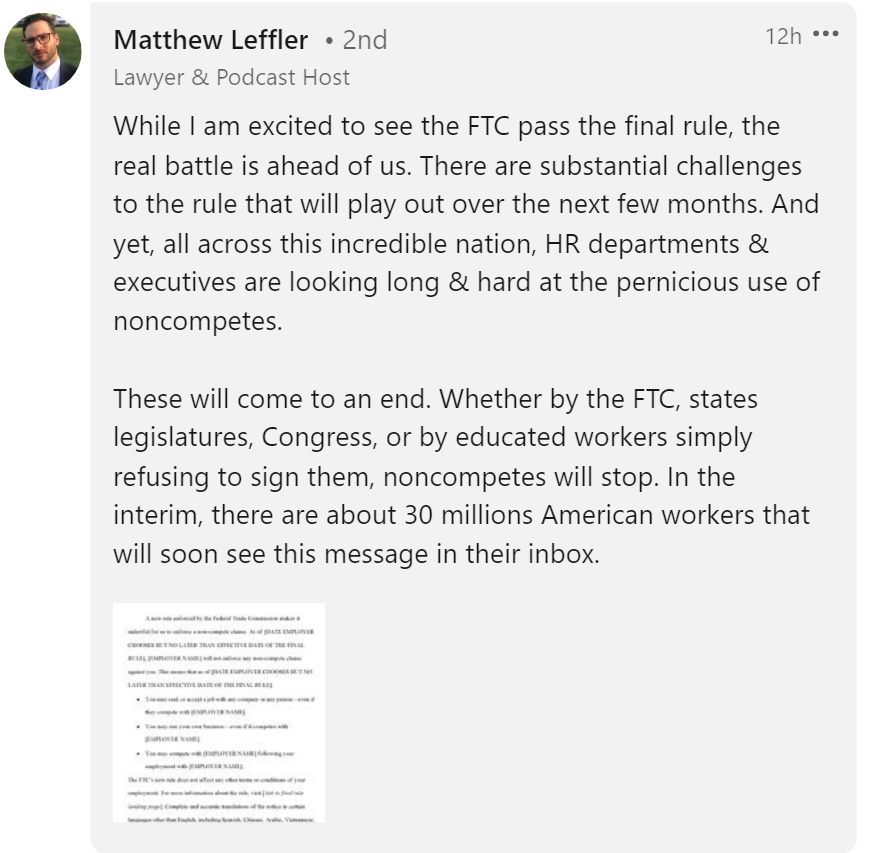🎣 The Perfect Stolen Load
Plus: backlash over carrier safety rankings, the Port of LA’s push toward 10M TEUs, states expanding ICE enforcement, and more in today’s newsletter.
The FTC's non-compete ban faces challenges. Here’s what to expect as legal battles loom and the freight industry adapts.

Earlier this week, a groundbreaking announcement shook the freight and logistics industry. The Federal Trade Commission (FTC) has banned non-compete clauses, dramatically altering the landscape for countless professionals across all industries. But what happens next?
Who's Pushing Back?
The main opponent of the FTC's decision is the U.S. Chamber of Commerce. They argue that the ban undermines competitive business practices and exceeds the FTC’s authority.
What They're Saying:
“The Federal Trade Commission’s decision... is not only unlawful but also a blatant power grab that will undermine American businesses' ability to remain competitive,” says Suzanne P. Clark, President and CEO of the U.S. Chamber of Commerce.
What Will Happen in Court?
Lawyer Matthew Leffler notes, "There is a real issue as to whether the FTC has the authority to make the rule. The US Chamber of Commerce will sue to enjoin the rule & take it to SCOTUS to decide that question...This fight will be massive."

How It Changes the Game:
Previously, non-compete agreements could sideline careers for up to two years, particularly in freight brokerage and third-party logistics (3PLs). With the ban, we might see:
As the legal battles unfold, the implications of this decision could be significant. The freight sector might experience a surge in innovation and talent mobility, mirroring trends in states like California where non-competes have long been banned.
Despite potential legal hurdles, the trend against non-compete clauses seems to be gaining momentum, supported by a generational shift in workplace values and expectations.
Sources: U.S. Chamber of Commerce
Join over 14K+ subscribers to get the latest freight news and entertainment directly in your inbox for free. Subscribe & be sure to check your inbox to confirm (and your spam folder just in case).